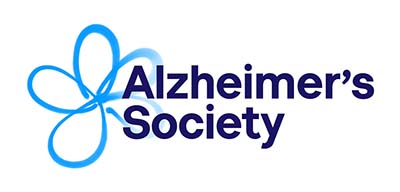Placing your loved one into elderly care, or facing up to the fact that such care is needed, can be a difficult and potentially overwhelming time, so it’s important that you are aware of the various options available to you.
What types of care are available for my elderly relative?
There are several different types of care available for elderly people depending on their needs. Bondcare owns and operates various homes across the country which provide different types of care for residents, including:
- Dementia care for various types of dementia including Alzheimer’s
- Physical disability care
- End of life care
- Nursing care
- Residential care
Is a residential care home right for my relative?
Residential care is right for people who need help with daily living, but who are able to retain some independence. Residential care homes provide round-the-clock care for residents, provided by registered and qualified care assistants. The care assistants will help residents with dressing, eating, washing and socialising, but they also encourage residents to maintain some independence in their day-to-day lives if possible. Each resident in a residential care home will have their own individual plan of care – if they are in receipt of medication, it will be offered to them as per the times stated on their prescription.
Is a care home with nursing right for my relative?
Care homes with nursing are for people who need 24/7 nursing and residential care. The homes have access to GPs and physiotherapists for additional support, and each resident’s every need is cared for, including specially-designed beds for comfort and mobility aids where required. Nursing homes are right for people with mobility issues, disabilities and long-term medical conditions, including:
- Long-term illnesses
- Dementia
- Huntington’s disease
- Parkinson’s disease
- Those recovering from serious injuries
- Those in palliative care
In Bondcare’s care homes with nursing, residents have access to 24/7 care from qualified nurses, and there are plenty of facilities for socialising and relaxation, including gardens, hair salons and activities such as shopping trips and games to keep everyone stimulated. Residents receive three meals a day from a nutritious, tasty menu of dishes prepared by professional chefs.
What can I expect from a Bondcare care home?
Bondcare is absolutely committed to providing the highest standards of care across each and every one of our care homes. All of our care assistants hold NVQ (National Vocational Qualification) or RQF (Regulated Quality Framework) to level 2 or 3.
Our care assistants are on hand to assist residents with various aspects of everyday life, from washing and dressing to eating, drinking, and mobility. While this assistance is available whenever required, we do encourage our residents to maintain independence where possible, whether that’s through dressing themselves or mingling and socialising with other residents, and taking part in social activities. If your loved one is in receipt of medication, we’ll provide them with it at the times suggested on their prescription.
Residents are allowed to bring personal items into their rooms, such as photos and trinkets, and they can even bring in their own furniture with a prior agreement. We know how much of a change it is to move into a residential home, and so we do everything we can to make each resident feel as welcome as possible.
Is elderly care tax deductible? Can I claim for it?
Elderly care is not usually tax deductible, so you cannot claim any care home fees you pay against your income tax bill. However, depending on your circumstances, your local council may be able to fund some of the cost of elderly care for your loved one. This process is means tested – the council calculates the total cost of the care, evaluates it against your total income – including pensions – and determines how much you must pay towards the cost of the care. The test also looks at how much capital you have – things like savings and, in some cases, property. However, property is not always eligible for inclusion in the means test. Certain types of income, such as disability benefits, are excluded from the means test.
- If your capital exceeds £23,250, you must pay the full cost of care.
- If your capital is between £14,250 and £23,250, you will pay a contribution from your income such as pensions and a ‘tariff’ based on your capital between £14,250 and £23,250. The council will fund the rest.
- If your capital is below £14,250, you will contribute from any income included on the means test, and the council will fund the rest.
How can I get NHS-funded elderly care?
People with ongoing significant physical or mental health needs or primarily health-based care needs may be eligible for NHS funding (known as NHS continuing healthcare, or NHS CHC). If they do not meet the NHS CHC criteria, but they still have nursing requirements, then the NHS can make a contribution directly to the nursing home – known as NHS-funded nursing care (NHS FNC).
In order to establish whether or not your loved one meets the criteria, their needs will be assessed by the NHS. If you think your loved one may be eligible for NHS CHC, speak to their GP to arrange for an assessment. Please click here to read more about NHS-funded care.
Bondcare are proud providers of the highest standards of elderly care in our care homes across the country, with numerous residential care homes and care homes with nursing around the UK. To find your nearest care home, click here. To speak to us about the types of care we offer, please contact us today – we’re always happy to help.





